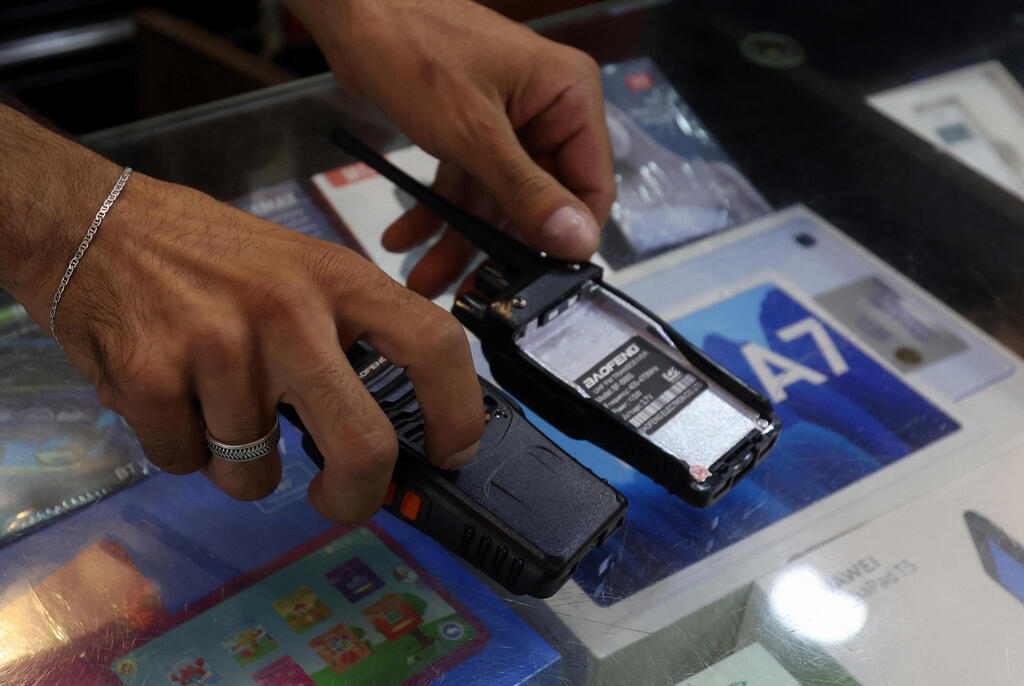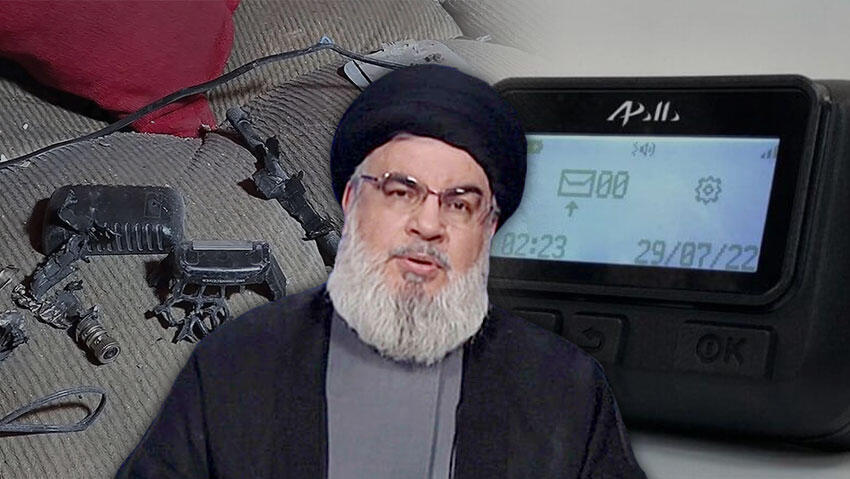Getting your Trinity Audio player ready...
Eight people were injured Thursday morning when an anti-tank missile fired from Lebanon struck the Upper Galilee.
The wounded were evacuated to hospitals in northern Israel, with one person listed in serious condition, one in moderate condition and the others sustaining minor injuries. The IDF responded with artillery fire targeting the sources of the attack. Hezbollah claimed responsibility for the missile strike.
Israeli strikes on Hezbollah targets in southern Lebanon
(Video: IDF Spokesperson's Unit)
Later, a drone strike wounded two Israelis in the western Galilee, prompting the IDF to respond with artillery fire toward southern Lebanon. The army reported that several drones had crossed from Lebanon, with fragments landing near Beit Hillel.
Firefighting crews were deployed to extinguish a blaze in the area, and no casualties were reported in the town. The IDF later confirmed that the drone strike hit near Ya’ara, but no direct hits were identified there.
The incident occurred amid rising tensions following a series of mysterious explosions in Lebanon over the past two days, which have been attributed to Israel and have resulted in thousands of casualties, including Hezbollah operatives. In response to these attacks, Hezbollah has threatened retaliation.
Overnight, Israeli Air Force fighter jets struck Hezbollah military sites in several southern Lebanese towns, including Chihine, Taybeh, Blida, Meiss al-Jabal, Aitaroun and Kfarkela, according to the IDF. Additionally, aircraft targeted a Hezbollah weapons depot in Khiam.
According to a New York Times report, Israeli intelligence identified an opportunity to act against Hezbollah following a speech by the group’s leader, Hassan Nasrallah, in February. In his remarks, Nasrallah warned his followers about the dangers of using mobile phones, urging them to replace them with pagers. “The phone in your hands, in the hands of your wife and children, is the agent,” Nasrallah said. “Bury it, put it in an iron box and lock it away.”
The report noted that Nasrallah’s directive to expand the use of pagers ultimately backfired seven months later, leading to the devastating explosions.
Even before Nasrallah’s speech, Israeli intelligence had begun implementing a plan to establish a fake international pager company. According to three intelligence sources, the Hungarian pager company that manufactured the devices that exploded earlier this week was set up by Israel. At least two other companies were also created to disguise the fact that the pagers were produced by Israeli intelligence officers.
Budapest-based BAC Consulting KFT provided legitimate pager services to other clients, manufacturing devices without explosives. However, the pagers intended for Hezbollah operatives were produced separately, with PETN explosives concealed inside their batteries. These devices were shipped to Lebanon starting in 2022, though initially in small quantities.
After Nasrallah’s speech, production ramped up quickly. In addition to banning the use of cellphones during Hezbollah meetings, he also ordered that sensitive information should never be transmitted via mobile phones, according to intelligence officials who spoke to the Times. Hezbollah officers were required to carry pagers at all times, and in the event of war, pagers were to be used to direct fighters.
American intelligence officials said that over the summer, thousands of pagers were shipped to Lebanon and distributed among Hezbollah officers and their allies. While Hezbollah viewed them as a “defensive” tool, Israeli intelligence saw them as “buttons” that could be pressed at any moment. That moment appeared to arrive earlier this week.
Meanwhile, as U.S. officials continue to push for a diplomatic solution to prevent further escalation, Ibrahim al-Amin, editor of Hezbollah-affiliated Al Akhbar newspaper, published an editorial titled “The War of Annihilation, Lebanese Edition — Israel Wants to Eliminate Hezbollah.”
He wrote that Israel seems to be preparing for a new phase of conflict with Hezbollah, targeting the group’s human and military capabilities, making talk of an all-out war increasingly realistic.
2 View gallery


A communication device that exploded in Sidon, southern Lebanon
(Photo: REUTERS/Aziz Taher)
“If the enemy has decided to carry out operations against more than 10,000 people, military personnel and civilians, in command centers, outposts or homes, then it has decided that we are in a no-holds-barred war,” al-Amin concluded.
'Ironclad' American support
Defense Minister Yoav Gallant spoke with U.S. Defense Secretary Lloyd Austin on Thursday following the explosions in Lebanon, which have been attributed to Israel by foreign media.
The Pentagon said that the U.S. was not involved in the operations and that Israel had provided information about the incidents through intelligence channels. According to the Pentagon, Gallant and Austin “reviewed regional security developments” during their call.
Austin reiterated the United States’ “ironclad” support for Israel in the face of threats from Iran, Hezbollah and Tehran’s regional allies.
Austin emphasized the U.S. commitment to deterring Israel’s adversaries and efforts to de-escalate tensions in the region. He also underscored Washington’s preference for a cease-fire agreement in Gaza that would secure the return of hostages and a “lasting diplomatic solution to the Israel-Lebanon border conflict that would allow civilians on both sides to return to their homes.”
Iran also responded to the explosions in Lebanon, which injured its ambassador to the country, Mojtaba Amani. Tehran said that it “reserves the right under international law to take necessary measures to respond to the attack on its delegation.”
Additionally, Iran called on UN Secretary-General António Guterres and the Security Council to “condemn Israel’s terrorist act and heinous crime against the Iranian delegation in Lebanon and Lebanese sovereignty.”






